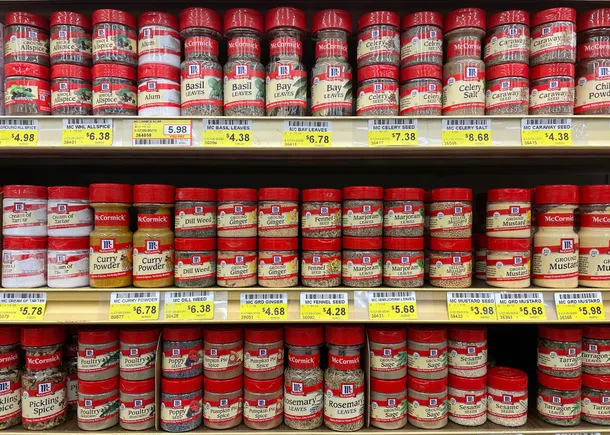McCormick & Co. recently announced an increase in its projected tariff impact for 2025, with CFO Marcos Gabriel revealing that the impact is now expected to be around $140 million, up from the previous estimate of $90 million. This increase in costs is attributed to both existing tariffs and new tariffs that were implemented as of August. Gabriel explained that the new tariffs accounted for approximately two-thirds of the levy impact on the third quarter ending in September.
Looking ahead to 2026, McCormick plans to offset as much of the incremental impact as possible through various strategies. These include productivity savings across the profit and loss statement, alternative sourcing, supply chain initiatives, and leveraging revenue management capabilities, such as pricing adjustments.
The company has been navigating the challenges posed by tariffs since April, when President Donald Trump announced levies on products from nearly every country. McCormick’s diverse portfolio, which includes 17,000 ingredients across 90 markets, has made it difficult to mitigate the impact of tariffs. However, the company has managed to offset some of these costs by raising prices and shifting its procurement footprint to lower-tariff countries.
President and CEO Brendan Foley emphasized the company’s global manufacturing strategy, resilient supply chain, and collaborative efforts as competitive advantages that have enabled McCormick to mitigate the impact of tariffs and maintain business momentum. Despite facing rising commodity prices in the first half of 2025 that accelerated in the third quarter, the company remains focused on finding ways to navigate these challenges.
In addition to tariff-related issues, McCormick has also been expanding its distribution points in the Americas for various products like spices, seasonings, recipe mixes, hot sauce, and mustard. The company has also made strides in gaining distribution in high-growth channels like e-commerce.
Tariff mitigation efforts have been ongoing among other brand manufacturers as well. Companies like WD-40, Colgate-Palmolive, and Clorox have all implemented strategies to reduce their tariff exposure and lower costs through various supply chain and sourcing initiatives.
Overall, McCormick’s proactive approach to addressing tariff impacts and implementing mitigation strategies underscores the company’s commitment to navigating challenges in the global market landscape.


